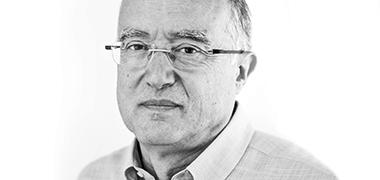We are celebrating the 10-year anniversary of Debats d’Educació by giving the educational community the opportunity to air its views

I hold a PhD in Economic Sciences and I am a lecturer in sociology at the Autonomous University of Barcelona. I participate in public debate working with various media outlets.
The three things I’ve learned
We’re talking about the same thing
In education, to me it seems impossible to separate fairness and quality or to set them against one another. Without quality, fairness is cut short. Without fairness, quality is discriminatory. Wherever I have seen quality work, I’ve found that opportunities were being offered, whether or not they were taken up. And I have seen that an obsession with fairness (which sometimes conceals a degree of laziness or, even worse, a great deal of incompetence) always removed opportunities for certain individual expectations. For me, fairness means offering the same opportunities to join in with the demand for quality. Fairness really means something where there is ambition and teaching quality. But there is a prerequisite to ambition and quality: good teacher training. And this is a constant: I recognise it in my own school experience, I have confirmed it with my children and I experience it every day at University; there is no fairness without good teachers.
Obfuscated by principles
I use the term “obfuscation” in the sense of not being able to see clearly. And the fact is that, although “principles” can guide critical action, they also work as conservative forces, as a way of avoiding the uncomfortable process of critically testing thought with experience. We can apply this to many dimensions of educational action, but it is really useful for thinking about the issue of the development of individual responsibility. The determinants of educational ideology that have been dominant in this country have worked against individual responsibility. A certain naive conception of individuals as people who should be protected from society to preserve their original goodness has done a great deal of harm. If we educate to allow free thought, to “free the individual from the tyranny of the present”, as Cicero put it, rather than protecting we need to push individuals towards society, mix them into it and encourage them to get stuck in and commit themselves to changing it.
For a political dimension to education
I believe that, to a large degree, personal motivation and academic performance are concerned with the assumption by the school institution – and therefore by the teachers and pupils – of a political responsibility going beyond individual interests. We have public education because, alongside the right to be educated, we have the duty to be educated. When I have had the opportunity to put across this idea that academic performance is not only for a person’s own benefit but also for the community and that it is a duty – I’d like to be able to say a “patriotic duty” – the response has generally been very positive. But I also have to say it has been received with some surprise. “We’ve never been told that,” people usually tell me. As well as being a poor way of looking at things, considering academic performance only in terms of personal advantage can even end up being false. By contrast, it is never misleading to look at it from the point of view of the general interest. And reinforcing the idea that being educated is a duty is what I call upholding the political dimension of education.















 The texts published on this website are, unless otherwise indicated, covered by the Creative Commons Spain Attribution 3.0 licence. You may copy, distribute, transmit and adapt the work, provided you attribute it (authorship, journal name, publisher) in the manner specified by the author(s) or licensor(s). The full text of the licence can be consulted here:
The texts published on this website are, unless otherwise indicated, covered by the Creative Commons Spain Attribution 3.0 licence. You may copy, distribute, transmit and adapt the work, provided you attribute it (authorship, journal name, publisher) in the manner specified by the author(s) or licensor(s). The full text of the licence can be consulted here: